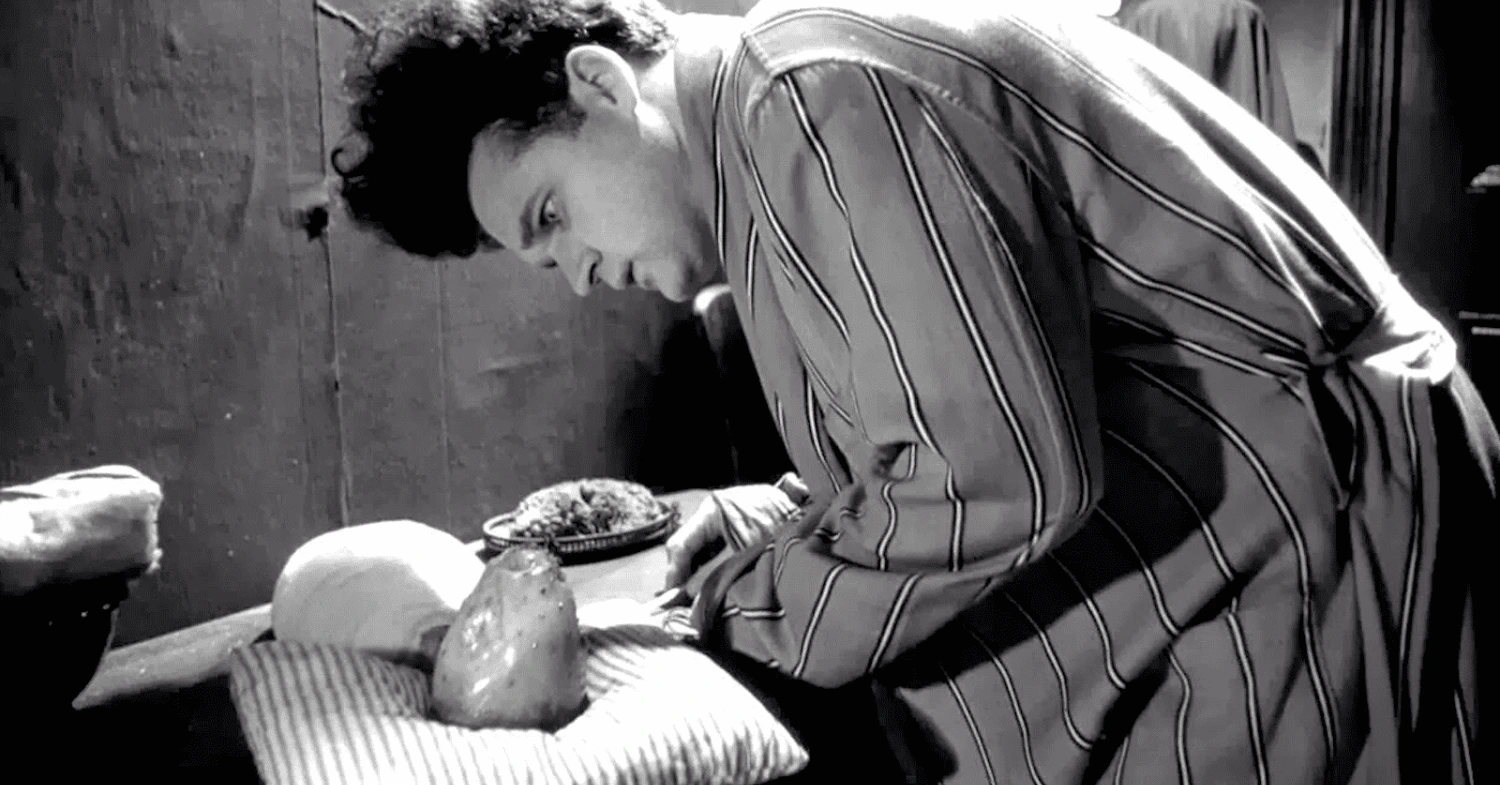While Eraserhead isn’t among my favorite David Lynch movies – in fact I’d place it towards the bottom half of his filmography for sheer replayability reasons – it’s still a strange, occasionally endearing movie to return to to see how he began. An artist in every sense of the word, David Lynch doesn’t care if you “understand” his movies. The images bleed out of him whether he can help it or not.

Eraserhead is unlike anything you’ll ever see – both a testament to David Lynch’s early adoption of idiosyncratic, dreamlike imagery and his interest in turning the usual into the surreal. It’s no wonder the acclaimed director’s 1977 debut breakthrough still stands among the best first films ever made and a canonical entry in 1970s filmmaking; an era that saw decades of boundary-pushing auteurs establish themselves in the industry. While David Lynch’s career arch wouldn’t take the form of a traditional blockbuster filmmaker, there was clearly enough in Eraserhead to hand him the car keys for whatever passion projects he decided to tackle in the future.
And Lynch has made good on the promise of consistently directing unique, often avant garde and nonlinear hits. His cult following is unlike any director’s ever, and the term “Lynchian” has become such a common label for movies impossible to comprehend, yet incredibly easy to admire and laud. Eraserhead starts a singular career in equally singular fashion, as the story of a troublesome relationship and struggling new father takes the form of a director willing to push the limits whenever it makes sense.
It’s hard to argue that Eraserhead is David Lynch’s best film, but it’s easy to suggest he wouldn’t be the filmmaker he turned into without it. The massive critical intrigue for the debut, combined with middling success for The Elephant Man, and rejection of his adaptation of Dune, would see Lynch retreat to the sort of fragmented storytelling that he tries out admirably here. It’s not that Eraserhead doesn’t make sense as a narrative, it’s that David Lynch confidently does not care if you understand every corner of this story. There are many pieces of it, from Jack Nance‘s superimposed face that starts the film to his surreal visions of a lady inside of his apartment’s radiator singing to him, that don’t have a clear cut explanation, but the visceral emotion they are able to pull from you makes all the difference.
And it wouldn’t be a faithful review without talking about Henry’s (played by Nance) relationship with his indelible child – best described by Wikipedia’s plot summary as a “spermatozoon creature” or by one clever Letterboxd review as an AirPod. It’s impossible to shake a few of the images in Eraserhead, and David Lynch is able to blend that idiosyncratic style with a cohesive story miraculously, because Eraserhead could easily become a pretentious flop in the wrong heads and lost to time years later. It’s because of Lynch’s later success and how that ties to his initial interests here that makes Eraserhead such an odd, creative launch point into a career so distinct.
So while Eraserhead isn’t among my favorite David Lynch movies – in fact I’d place it towards the bottom half of his filmography for sheer replayability reasons – it’s still a strange, occasionally endearing movie to return to to see how he began. An artist in every sense of the word, David Lynch doesn’t care if you “understand” his movies. The images bleed out of him whether he can help it or not. There may not be a better example of that than his debut, one of the more acclaimed ones ever. Eraserhead gets the job done.
Rating: 7/10
- Cast: Jack Nance
- Director: David Lynch
- Genre: Horror
- Runtime: 89 minutes
- Rated: R
- Release Date: March 19, 1977
More Reviews for Movies Directed by David Lynch
David Lynch has directed the following movies: